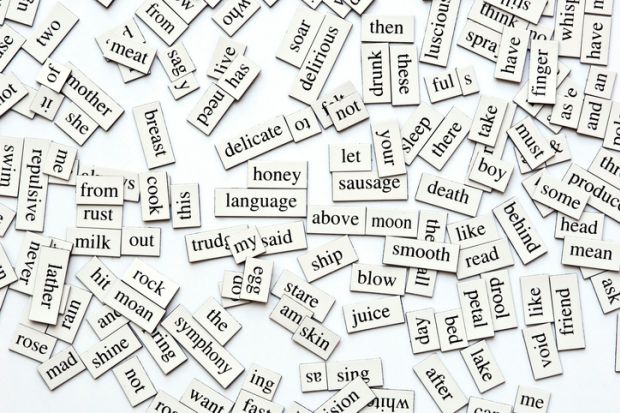To unmask, according to the Oxford English Dictionary, is “To disclose the true nature of, or reveal the hidden truth about”. Unmasking prompts a heroic scenario. On one side is that which is unmasked – something usually replete with negative connotations. On the other is the unmasker, a word attested since 1605. “Tyme the unmasker of all Feignings will discover the Truth,” its earliest citation states. In this deliberately provocative book, we are invited to think about such “Feignings” in the history of English lexicography, and the nature of the dictionary per se.
Some of this “unmasking” is familiar. “The student who is squeamish about plagiarism had simply better not study the old wordbooks, to which the concepts of plagiarism and literary property are hardly applicable,” De Witt T. Starnes and Gertrude E. Noyes wrote in The English Dictionary from Cawdrey to Johnson, 1604-1755 (1955). Dixon provides a critical survey of the history of dependence that characterises earlier lexicography, offering some useful examples of transmission and appropriation.
Accusations of plagiarism can nevertheless be a blunt weapon. If some dictionaries were copied wholesale, others – such as Edward Phillip’s appropriation of Thomas Blount’s Glossographia in the 17th century – also reshaped material in ideologically significant ways. Still others, in the absence of copyright law, saw their role as a collaborative venture with the past. “If they rob, they don’t do it any other wise, than as the Bee does, for the publick service. Their object is not pillaging, but in collecting Contributions,” Ephraim Chambers said in his Cyclopaedia of 1728.
Joseph Barretti, with whom Samuel Johnson was closely associated, argued that lexicography was a process of judicious compilation, selection and updating. Writers such as these remove their own “mask”, openly acknowledging the working processes that typified earlier lexicography.
But Dixon’s fiercest criticism is reserved for the dictionary itself. In its reliance on alphabetical order and atomistic treatment of words, it has, he says, made little advance since Johnson’s time. Instead, “what a dictionary-user needs is advice on the semantic and grammatical differences between words of similar meaning”. The advances brought by 20th-century digital lexicography, not least in the contextual rather than atomistic analysis of meaning, are dismissed.
Dixon’s ideal – as yet hypothetical – dictionary is unmasked as a quasi-thesaurus, examining words in related semantic functions whereby diligent users might discern when to use, say, finish or cease or end. A query will generate a “semantic set” (or several) within a “conceptual template” by which the reader can negotiate just what a word might mean. It will “be partly explicated in one place”, but a click will bring “related exposition”, and so on. Even if we are assured that “A user does not want to have to wade through 50 pages when it could all be said more concisely in 15”, looking up a word sounds daunting and laborious. “It is to little purpose,” Johnson warned in 1747, “that an engine amuses the philosopher by the subtilty of its mechanism, if it requires so much knowledge in its application as to be of no advantage to the common workman.” In spite of Dixon’s brave new world, it can be tempting to agree.
Lynda Mugglestone is professor of the history of English at the University of Oxford. She is currently writing a book on language, lexicography and the First World War.
The Unmasking of English Dictionaries
By R. M. W. Dixon
Cambridge University Press
272pp, £64.99 and £19.99
ISBN 9781108421638 and 433341
Published 31 January 2018
POSTSCRIPT:
Print headline: The last word on lexicography?
Register to continue
Why register?
- Registration is free and only takes a moment
- Once registered, you can read 3 articles a month
- Sign up for our newsletter
Subscribe
Or subscribe for unlimited access to:
- Unlimited access to news, views, insights & reviews
- Digital editions
- Digital access to THE’s university and college rankings analysis
Already registered or a current subscriber?






